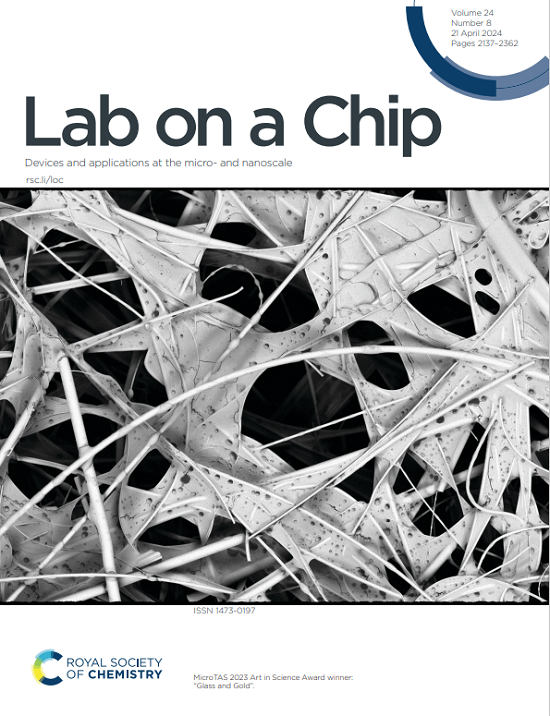Microstring-engineered tension tissues: A novel platform for replicating tissue mechanics and advancing mechanobiology
IF 6.1
2区 工程技术
Q1 BIOCHEMICAL RESEARCH METHODS
引用次数: 0
Abstract
Replicating the mechanical tension of natural tissues is essential for maintaining organ function and stability, posing a central challenge in tissue engineering and regenerative medicine. Existing methods for constructing tension tissues often encounter limitations in flexibility, scalability, or cost-effectiveness. This study introduces a novel approach to fabricate soft microstring chips using a sacrificial template method, which is easy to operate, offers controlled preparation, and is cost-effective. Through experimental testing and finite element simulations, we validated and characterized the relationship between microstring deformation, tissue width, and the reaction force exerted by the microstrings, enabling precise measurement of tissue contraction force. We successfully constructed microstring-engineered tension tissues (METTs) and demonstrated that they exhibit a significant mechanical response to profibrotic factors. Additionally, we conceptually demonstrated the application of microstring chips in constructing METTs with asymmetric, biomimetic constraints. The results indicate effective construction and regulation of METTs, providing a robust platform for mechanobiology and biomedical research.微弦工程张力组织:复制组织力学和推进机械生物学的新平台
复制天然组织的机械张力对于维持器官功能和稳定性至关重要,这也是组织工程和再生医学的核心挑战。现有的张力组织构建方法往往在灵活性、可扩展性或成本效益方面受到限制。本研究介绍了一种利用牺牲模板法制造软微弦芯片的新方法,该方法操作简便、制备过程可控、成本效益高。通过实验测试和有限元模拟,我们验证并描述了微串变形、组织宽度和微串反作用力之间的关系,从而实现了组织收缩力的精确测量。我们成功构建了微绳工程张力组织(METT),并证明它们对组织坏死因子有显著的机械反应。此外,我们还从概念上证明了微绳芯片在构建具有非对称生物仿生约束的 METT 中的应用。结果表明,METTs 的有效构建和调节为机械生物学和生物医学研究提供了一个强大的平台。
本文章由计算机程序翻译,如有差异,请以英文原文为准。
求助全文
约1分钟内获得全文
求助全文
来源期刊

Lab on a Chip
工程技术-化学综合
CiteScore
11.10
自引率
8.20%
发文量
434
审稿时长
2.6 months
期刊介绍:
Lab on a Chip is the premiere journal that publishes cutting-edge research in the field of miniaturization. By their very nature, microfluidic/nanofluidic/miniaturized systems are at the intersection of disciplines, spanning fundamental research to high-end application, which is reflected by the broad readership of the journal. Lab on a Chip publishes two types of papers on original research: full-length research papers and communications. Papers should demonstrate innovations, which can come from technical advancements or applications addressing pressing needs in globally important areas. The journal also publishes Comments, Reviews, and Perspectives.
 求助内容:
求助内容: 应助结果提醒方式:
应助结果提醒方式:


